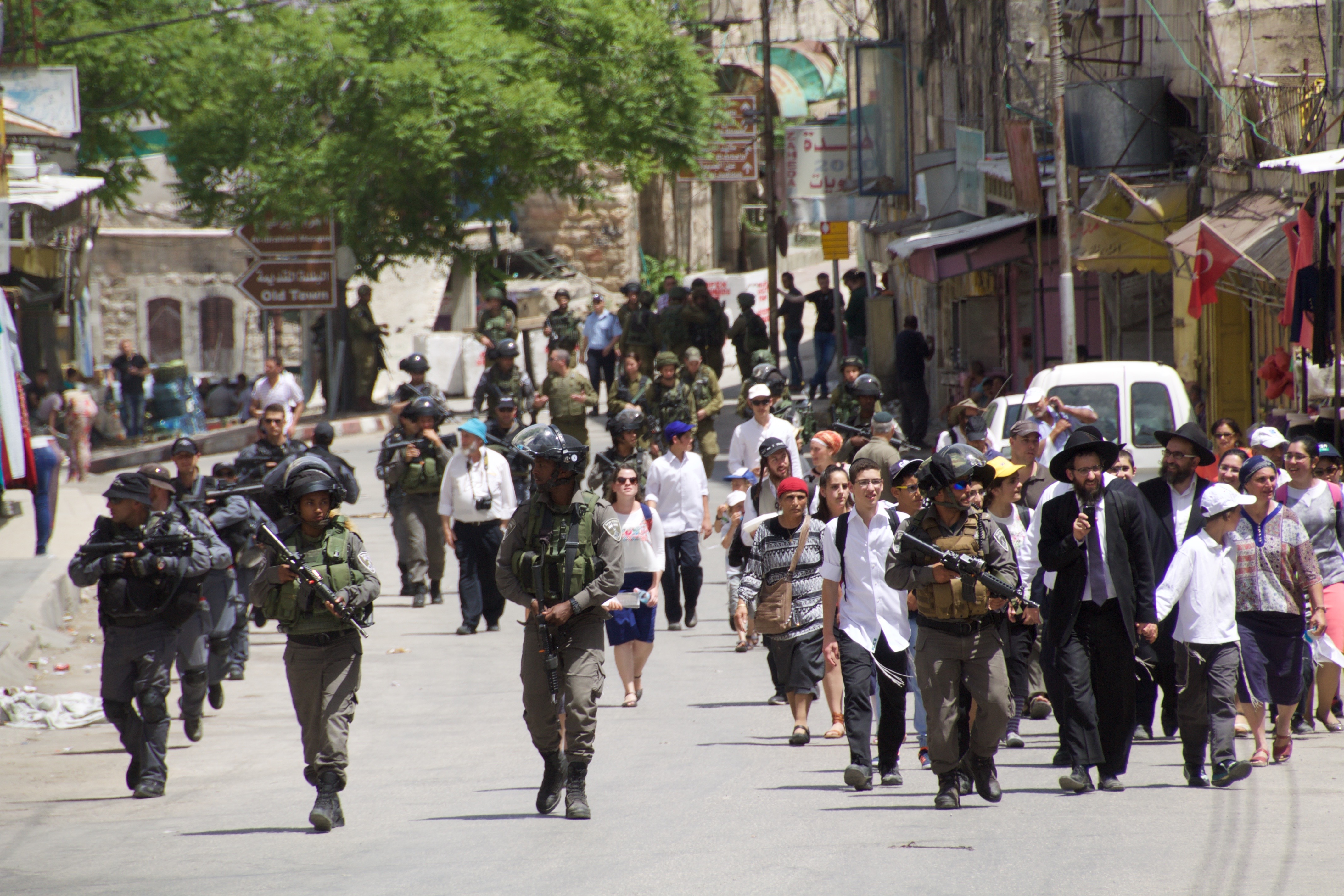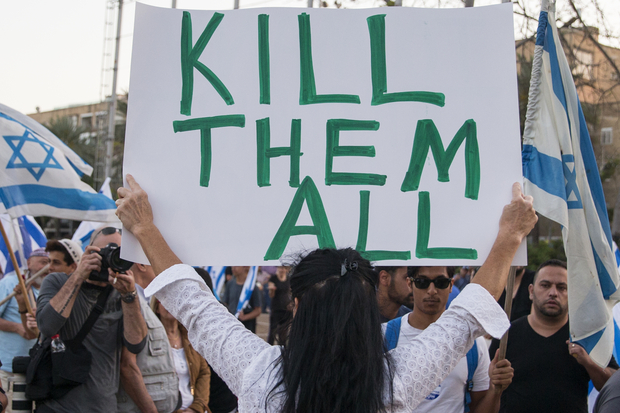Tag: Denial of Entry
-
Israeli army take control of street under Palestinian authority for illegal settlers’ visit
27th April 2016 | International Solidarity Movement, al-Khalil team | Hebron, occupied Palestine At around 11.30am on Tuesday 26 April, heavily armed Israeli occupation soldiers and border police started appearing in large numbers through Shuhada checkpoint (also called checkpoint 56). This area is H1 area, supposedly controlled by the Palestinian Authority, where Israelis have no…
-
Release of a cold-blooded killer illustrates the racism of Israeli society
23rd April 2016 | International Solidarity Movement, al-Khalil team | Hebron, occupied Palestine Yesterday, Elor Azraya, a soldier in the Israeli army, infamous for the extrajudicial execution of Abed al-Fattah al-Sharif in occupied al-Khalil (Hebron), has been released to celebrate the Jewish holiday of Pessach with his family. 21-year old Abed al-Fattah al-Sharif was lying…



